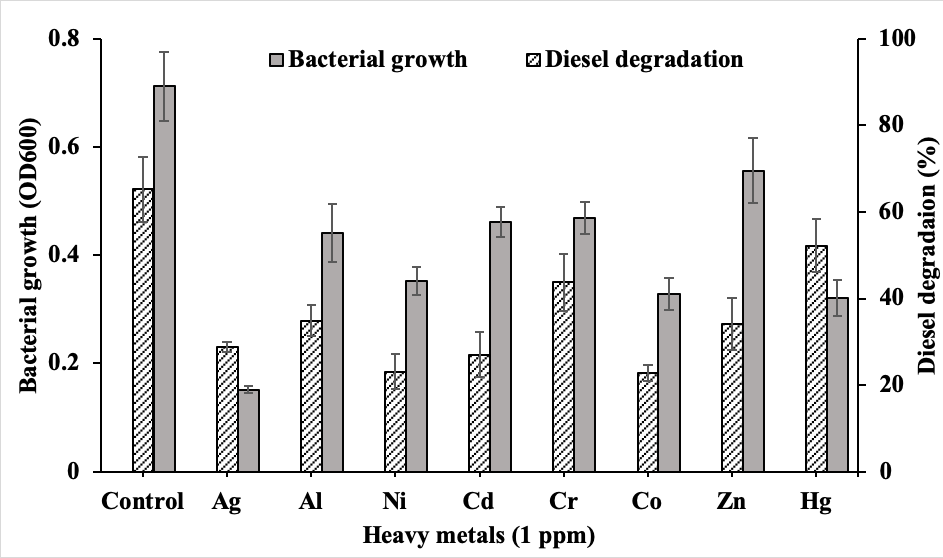 |
|
The presence of heavy metals in Antarctica is an emerging issue as human influence becomes more discernible over the years. The study of pollution in Antarctica can help people to understand the real influence of human activities on the environmental pollution from polar regions. Bioremediation of petroleum hydrocarbons in the polar environment where toxic metals co-existed involves selecting strictly autochthonous Antarctic strains with dual catabolic competence and tolerance to toxic metals. In this study, diesel degradation was observed in the presence of 1 ppm of eight selected heavy metals; Ag, Al, Cd, Co, Cr, Hg, Ni and Zn. Bacterial growth was inhibited in increasing order of Zn> Cr> Cd> Al> Ni> Hg> Co> Ag. Bacterial growth was the highest in Zn at OD600 0.556 (P>0.05) and lowest in Ag at OD600 0.151 (P<0.05). Diesel degradation was inhibited in the order of Hg> Cr> Al> Zn> Ag> Cd> Ni> Co, which was analysed using gravimetry analysis. Degradation was the highest in Hg at 52.23% (P>0.05) and lowest in Co at 22.76% (P<0.05). This work serves as a pilot study in gathering data to analyse and gather more data for inhibition concentration of heavy metals for the Antarctic marine bacteria.
Keywords: Antarctica, bacteria, diesel, heavy metal, marine.
|
|
 |

